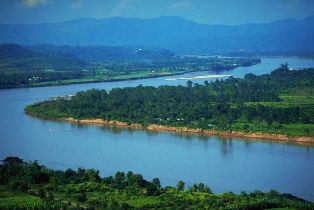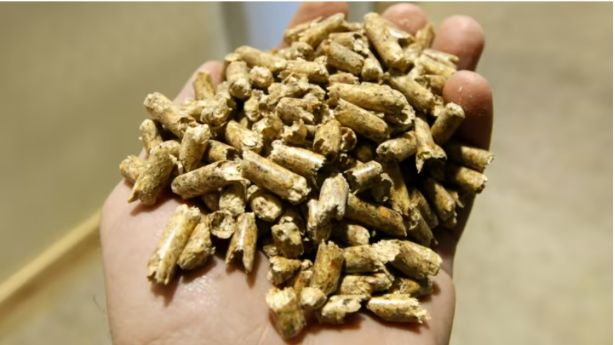Hanoi, November 5, 2024 – Believing that music can become a bridge to promote environmental actions, Cuon Hood Entertainment launched the music video (MV) "Uom Mam Xanh" (Nurturing Green Shoots) and the project of the same name to spread love for nature, responsibility towards the environment, and community engagement among young people. Recognizing the growing environmental pollution and the severe impacts of climate change, such as droughts, storms, and extreme weather conditions affecting people’s lives, and inspired by long-lasting forest restoration initiatives such as "Regreening Forests" and "For a Green and Sustainable Vietnam" campaign, Cuon Hood Entertainment’s youth group has launched a project that connects music with environmental protection actions.

NGOs Calls for Cancellation of Dams on the Mainstream Mekong River
On the occasion of the 2nd Mekong River Commission (MRC) Summit, on 3rd April 2014, the Save the Mekong Coalition (StM) sent a letter to four Prime Ministers of MRC member states to express their concerns over impacts of existing and planned hydropower projects.

StM believed that the current trajectory of dam building in the Mekong River Basin undermines the commitments and spirit of the 1995 Mekong Agreement, most critically the Principles of Cooperation, under which parties agree “to protect the environment, natural recourses, aquatic life…and ecological balance of the Mekong River Basin.”
The 11 dams planned on the Lower Mekong mainstream, threaten to destroy the Mekong River’s rich environmental and economic productivity. According to the MRC’s 2010 State of the Basin report, the mainstream dams “represent the single largest threat to wetlands, fisheries and local livelihoods of the Lower Mekong.”
These dams would fundamentally undermine the abundance, productivity and diversity of fish resources in the Mekong; blocking critical fish migration routes, leading to a substantial loss to fish resources. If all 11 dams are built, the result would be an estimated 550,000-880,000 tonnes – equivalent to 26-42% – loss of fish resources. Fisheries experts have stated that there is currently no technology that exists to mitigate the impacts these dams would have to fisheries. Such losses would undermine food security and livelihoods throughout the basin.
The hydrological and ecological changes caused by dams on the Mekong mainstream will irreversibly alter the river’s complex ecosystem, causing permanent loss of biodiversity and blocking the flow of nutrient-rich sediment to the delta.
Additionally the mainstream dams will have significant effects on riparian communities, disrupting their way of life, cultures, sense of community and food security, while impacting approximately 40 million people in the Lower Mekong Basin. The impacts would be directly felt by more than 106,000 people, who face relocation; and are likely to be forced into a life of greater poverty.
The Mekong River is not the same as it was four years ago when Your Excellencies met in Hua Hin, Thailand for the First Mekong River Commission Summit. The first Mekong mainstream dam – the Xayaburi Dam – has begun construction despite a contested process within and outside the MRC that failed to achieve agreement amongst Lower Mekong countries. Now a decision on the Don Sahong Dam appears imminent. Over the past 4 years, the MRC has failed to define its role and acilitate inclusive and accountable decision-making. The future of the Mekong River, as well as the MRC is now at a critical point.
The 1995 Mekong Agreement recognizes the “immense value” of the Mekong River Basin “to all riparian countries.” Therefore, StM urged leaders to take the necessary actions to protect and preserve the future of the Mekong River.
Given the significant impacts of the Lower Mekong mainstream dams, StM called on leaders to cancel all dams on the Mekong mainstream, including immediately halting construction of the Xayaburi and Don Sahong dams, as well as destructive tributary projects such as the Lower Sesan 2 Dam. And to use the opportunity of the Second Mekong River Commission Summit to discuss legal mechanisms that will strengthen regional cooperation, including transboundary environmental assessment and public dialogue, and most importantly to listen of the voices of people living along the Mekong who are already suffering from the impacts of hydropower dams about options to better share the cost and benefits of developing the Mekong River’s natural resources.
Read full the letter in English, Lao, Vietnamese, Khmer, Thai.




Comments (1)